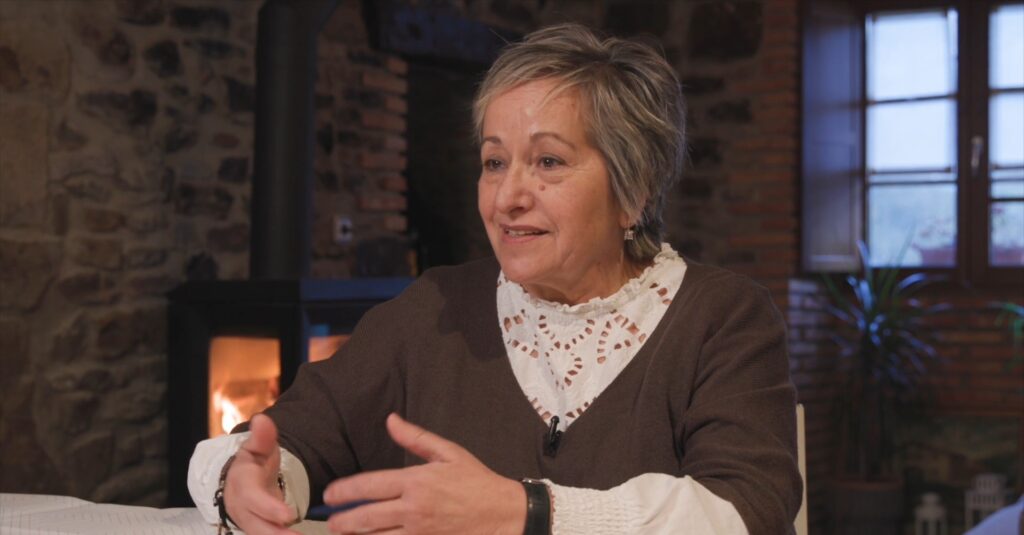
Maritxu Telleria, retired horticulturist and historical figurehead of the EHNE-Bizkaia trade union – Bizkaia
Maritxu Telleria, a retired horticulturist and historical figure of the EHNE-Bizkaia trade union, was a pioneer in many ways. Her life changed when, after marrying at the age of 21, she left her job in Oñati to move to her husband’s farm. With no previous experience in the rural world, it was her sister-in-law who taught her the first steps in the vegetable garden. Little by little, Maritxu discovered the joy of growing and selling fresh produce, both in the Durango and Arrasate markets, as well as making her way into large supermarkets such as Eroski.
With determination, she expanded her agricultural activity until she had several greenhouses and consolidated a way of life in the farmhouse. For at least two decades, she and her husband lived off the land, at a time when local markets were the main point of sale for fresh produce. For Maritxu, it was an intense and rewarding period that she remembers fondly.
Her social involvement began through the assemblies of the EHNE trade union. Encouraged by the women around her, she began to participate and was soon invited to join the leadership, becoming the first woman to hold an executive position in the union. It was a demanding period: she combined agricultural work with nightly meetings in Bilbao, often being the only woman in male-dominated spaces. For a while she felt invisible, like “a flower vase”, until she raised her voice to demand that those in other agricultural sectors beyond livestock farming should also be heard.
For her, the union was her university. It offered her a vital and political education that she could not have received as a young woman. She took part in important struggles, such as production quotas, milk prices and women’s rights in the farm. She denounced the fact that historically women had supported agricultural work from the shadows, without recognition or rights. Many could not participate and become more actively involved because in addition to working the land, they were also responsible for the house, the children and caring for the elderly. Maritxu was able to do so thanks to the support of her mother-in-law and an aunt who allowed her to take time off to participate in the trade union struggle.
She highlights the central role of women in agriculture, although their work has been made invisible. She recalls the difficulties in getting farms registered in their name or paying social security contributions, as well as the social and administrative obstacles that still persist.
Despite the progress made, she considers that the current situation is still difficult for both women and men in the countryside. Bureaucracy, market pressure and the lack of support for small farms make it difficult to make a living from the farm. However, if she could go back, she would not hesitate to choose the same path: to live and work on the farm, among vegetable gardens and greenhouses, surrounded by earth, roots and struggle.
